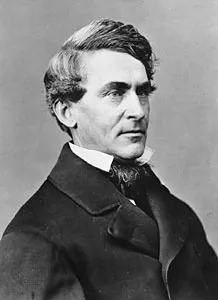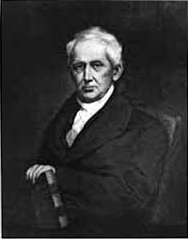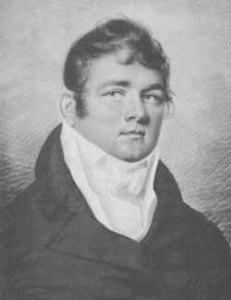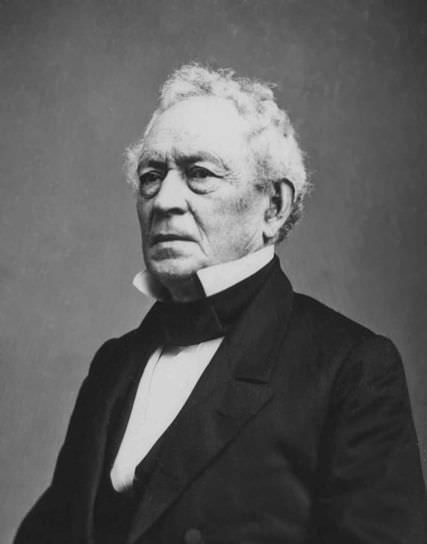
A picture of Theodore Frelinghuysen. Source: Britannica
The below Senators were leading the opposition to the bill because they considered removal as oppressive and unconstitutional. They felt the United States should honor its treaties and protect tribes from encroachment by settlers and state governments.

A picture of Theodore Frelinghuysen. Source: Britannica
Theodore Frelinghuysen
“One of the strongest supporters of the Indian opposition to removal was Senator Theodore Frelinghuysen of New Jersey. He represented his arguments in a long speech in the Senate on April 9, 1830, during the debate on the removal bill.” (Prucha)
"I believe, sir, it is not now seriously denied that the Indians are men, endowed with kindred faculties and powers with ourselves; that they have a place in human sympathy, and are justly entitled to a share in the common bounties of a benignant Providence." (Frelinghuysen Speech)

A picture of Peleg Sprague. Source: Maine Encyclopedia
Peleg Sprague
In his speech he questions Georgia's integrity for being in favor of the act, in an attempt to go back on treaties and deals previously made.
"Shall Georgia now be permitted to deny their validity? If a man, seeing another in the act of making a deed of his land, shall stand by in silence, until the conveyance is completed, and the grantee has parted with his money, paid the consideration, would any Chancellor, that ever sat in a Court of Equity, permit that man to reclaim his property, and thus consummate a fraud of the fair purchaser?" (Cherokee Phoenix)

A photo of Henry Storrs. Source: Digital Commonwealth
Henry Storrs
"Like other removal opponents, Congressman Henry Storrs of New York was apprehensive towards giving the President power to deal directly with the Indians. The bill, if approved by Congress, would vest the President precisely with that power. He stated James Madison's sentiment that the Founding Fathers would not have given one branch of government the power to conduct Indian affairs without the balanced advice and consent of the two others. But this bill would precisely give the President that sole authority to move the Indians out of their land by a mere executive order." (Indian Resistance)

A photo of Edward Everett. Source: Everett Public Libraries
Edward Everett
"The evil, Sir, is enormous; the inevitable suffering incalculable. Do not stain the fair fame of the country.... Nations of dependent Indians, against their will, under color of law, are driven from their homes into the wilderness. You cannot explain it; you cannot reason it away.... Our friends will view this measure with sorrow, and our enemies alone with joy. And we ourselves, Sir, when the interests and passions of the day are past, shall look back upon it, I fear, with self-reproach, and a regret as bitter as unavailing." (Evarts)
“The U.S. Government used treaties as one means to displace Indians from their tribal lands, a mechanism that was strengthened with the Removal Act of 1830. In cases where this failed, the government sometimes violated both treaties and Supreme Court rulings to facilitate the spread of European Americans westward across the continent.” (Office of the Historian)
Although the hope was to remove the Native Americans with little force, resistance did occur. As such, this resistance was met with military threats and force.